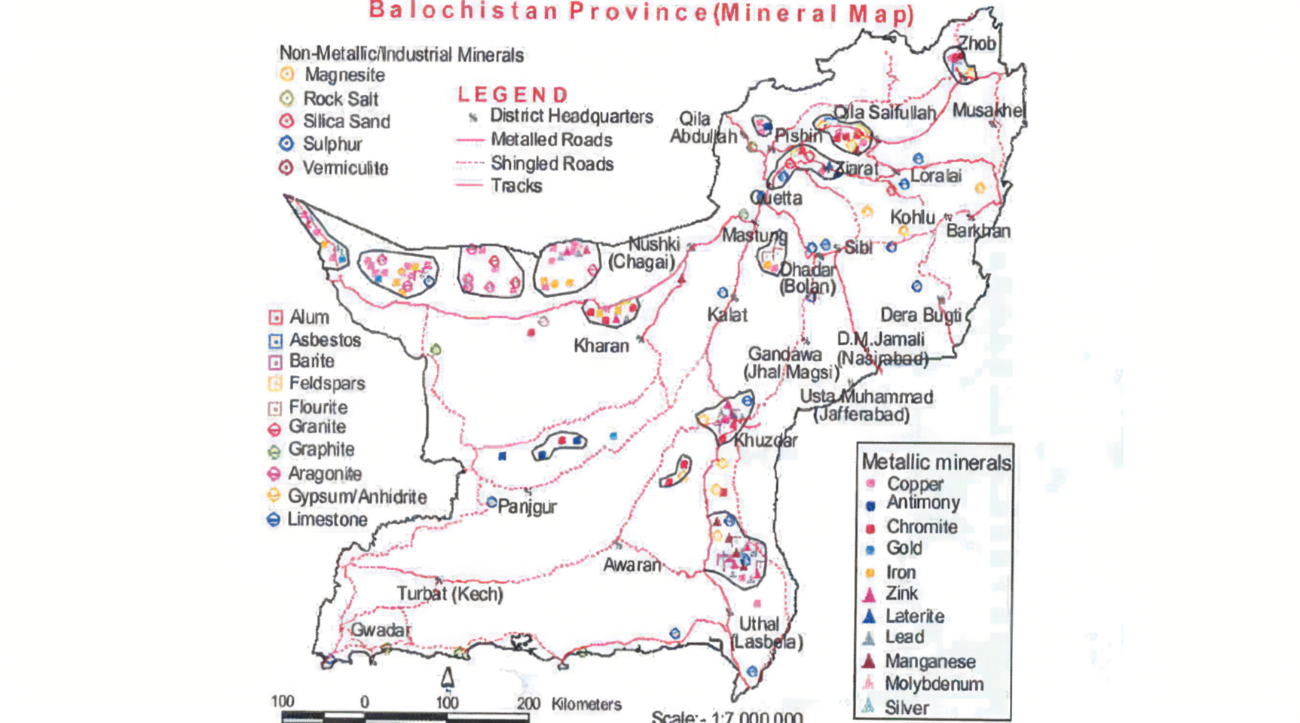Balochistan’s Untapped Potential and Pakistan’s Path Forward

An earth never curses its children. It has treasures to share in silence, gold, copper, lithium, and rare earths buried beneath the dirt ready for prosperity, or plunder into despair. Chaos above ground — weak institutions, foreign exploitation and the failure of state to rise above internal divisions — is what brings ruin, not the resources.
After the recent International Mining Conference in Islamabad, global investors fixed their sights back on Pakistan, and more specifically, them of Balochistan, which is what this truth is ringing out with urgency. Its rugged terrain covers wealthy minerals that will be imperative to future economies—copper to wire progress, lithium to put away energy levels and uncommon earth components to drive the computerized age. For once, Pakistan’s resource base is not passed by unheeded. The world sees opportunity. The question is whether Pakistan has the wisdom to recognize it.
There are two futures and they are equally illustrated by the history of nations that stood precisely at this crossroad. As one of the three megadiverse countries in Africa, its abundance of natural resources was squandered leaving Africa a cautionary tale of squandered wealth. With no national ownership or stable institutions (and later on, with corruption in government) extraction turned into exploitation. The foreign companies became rich, the local communities remained poor. Just as these lands held riches, they also fueled violence, displacement, civil war and, on the other side of terror, sponsored by the profits that never made it to the people.
Just contrast that to Arab Gulf states, nations that made the resource wealth a source of national strength. Sovereign wealth funds were built by the United Arab Emirates, Qatar and Saudi Arabia to invest in their futures. Long term planning, state control over strategic assets, forming global technology partnerships and, most importantly, keeping internal peace were what they emphasized on. Their populations became more stakeholders than casualties in the story of national development.
Pakistan must choose. Today, Balochistan is not just the core of Pakistan’s mineral wealth but it is also the hub of the very dangerous game of the hostile actors. Militant outfits like BLA, BRA, BLF, LeB, BYC and BNM along with their political proxies are not merely disruptive entities, rather they are the discs of geopolitically destructive designs in cahoots with the foreign element. The attacks are merely a part of a long war fought through bombings of power lines, assassination of engineers and workers, holding passenger trains such as the Jaffer Express hostage, and creating telling tales of hatred and hopelessness.
The aim is clear. Let Balochistan burn so that Pakistan can neither control nor benefit from its own resources. Make sure that any extraction involves terms defined by someone other than Pakistan, our terms will be defined by someone who benefits from our weakness and not from our strength.
However, this is one critical juncture where Pakistan must not be found committing the same mistakes as others. No natural resource is a curse unto itself, it is only when the state is weak, either because it is distracted somewhere else or because it is compromised that the curse evolves. A hybrid model of providing the best of both security and development is the solution.
Security must come first. No bloody revolution can be had in which railways are at the point of being blown up. It is existential that a decisive, sustained crackdown on foreign sponsored terror networks be made. Their political cover must be completely exposed, the funding for these groups must be cut off, and these groups must be dismantled entirely.
Security is not enough by itself. The prosperity of the state is built out of the scaffolding. Key is that the institutions which are supposed to be independent and well equipped are not politicized or paralyzed. They must be transparent, be reviewed by parliament and informed by the national interest. Secretive arrangements of that sort give rise to mistrust, and their days are over.
In order to guard against the tragedy of wealth extraction with no public good, Pakistan ought to set up a sovereign wealth fund like those of the Arab states. This money has to flow into national and provincial long-term investments into development, not into the pockets of a few. Communities need to be put into a process rather than as passive observers but active stakeholders. They must be trained, equipped and employed. If adults don’t learn the technologies, develop the skills, if adults aren’t part of ownership of the future, who is?
But Pakistan should form strategic partnerships with the nations that respect Pakistan’s sovereignty and long-term vision. All that is needed is, technology transfers, joint ventures and global alliances should take place in an environment of transparency and should serve Pakistan’s national interest first, not first and foremost serve short term individual gains.
This all starts with the understanding that Balochistan is not a liability but a potential engine of prosperity. However, only if we defend it, arm it, and administer it with vision and determination. The road ahead is not easy. And there will be resistance, sabotage, and political noise. History however, does not wait for hesitation.
The Mining Conference cannot result in another footnote in the development plans that never sees the light of day. It must be a turning point. A commitment. A national mission. The people of Balochistan — and Pakistan — need to know that their land’s wealth is being turned into roads, schools, hospitals and jobs, not another bombing, another hijacked train.
There are generations to come the watch the world. Will it yet again allow its resources get away due to internal and external chaos, or will it at last write a different story – one of sovereignty, prosperity, and peace?
History will remember the choice Pakistan will make.











